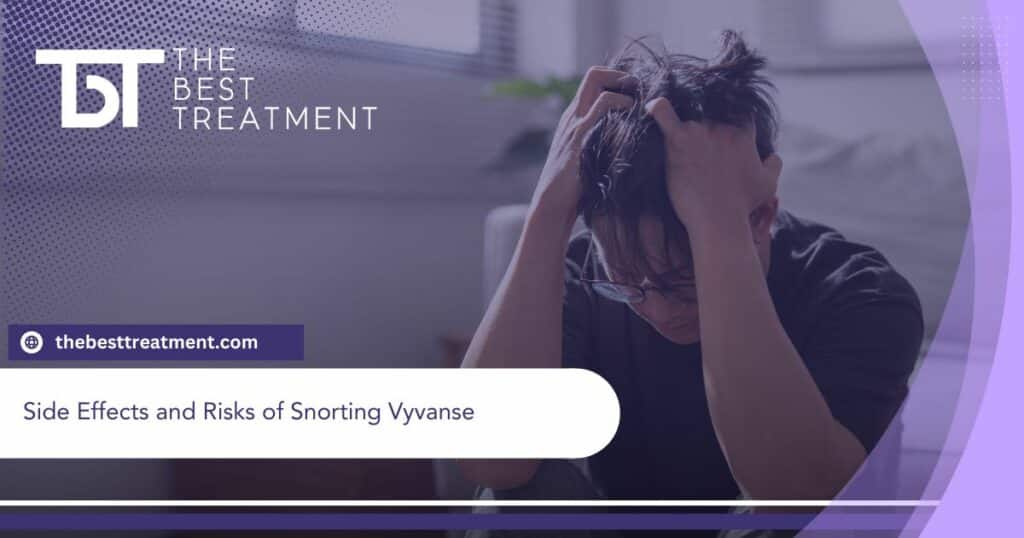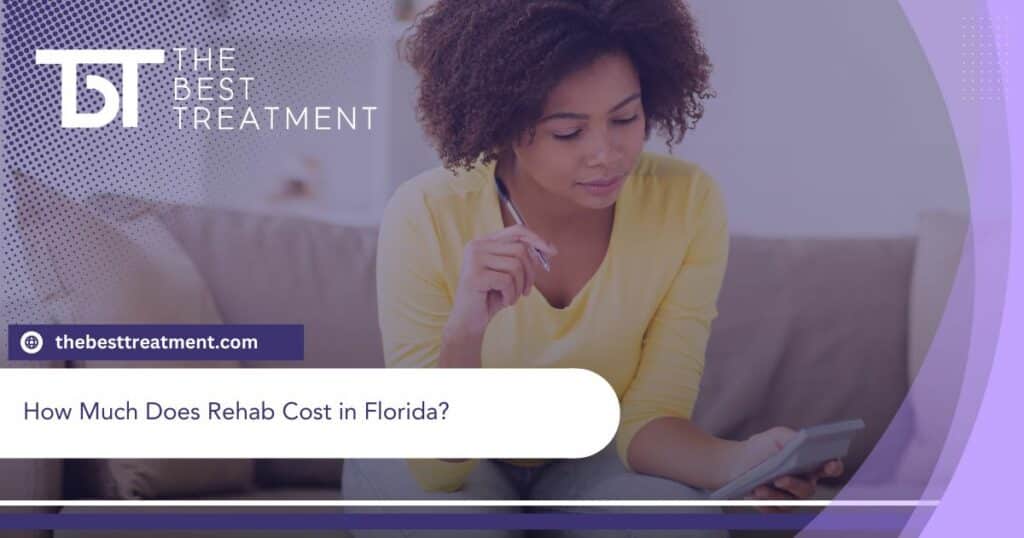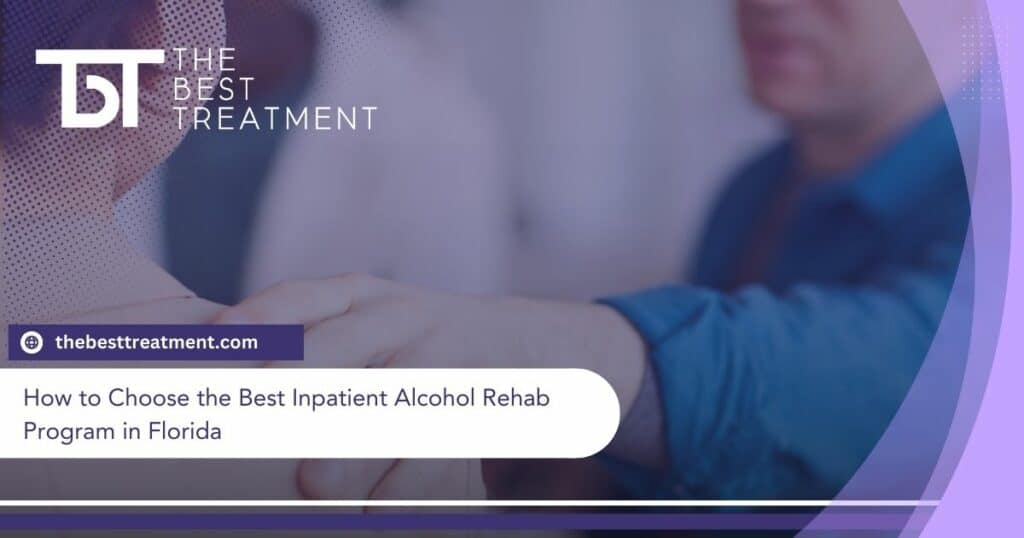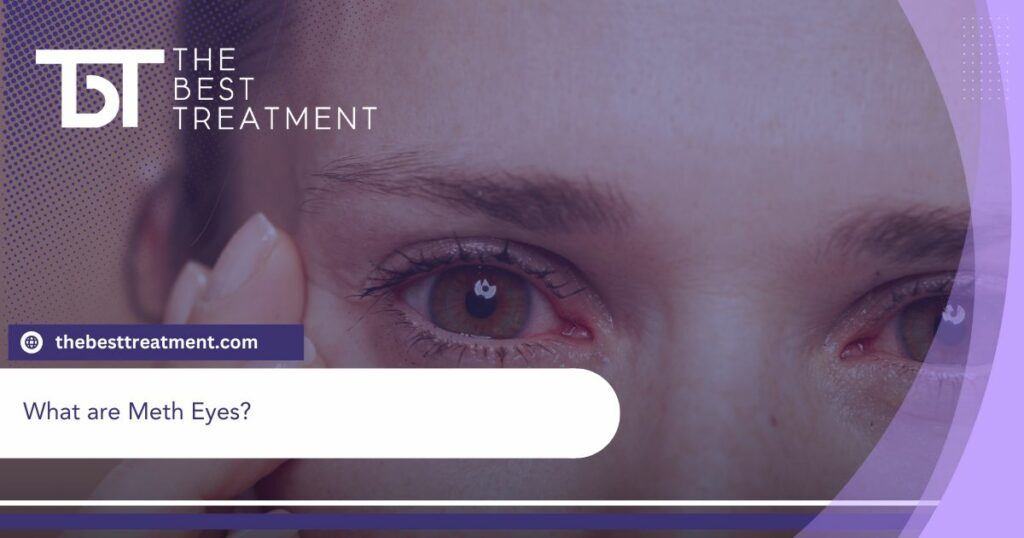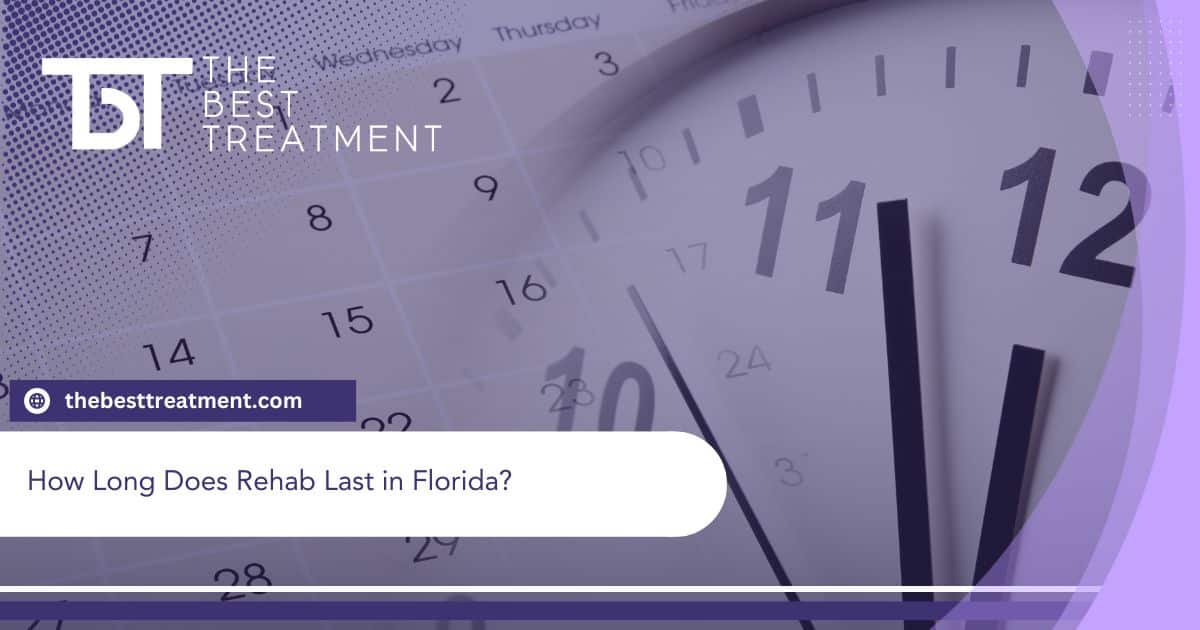Table of Contents
Living with drug and alcohol abuse can be devastating. Addiction can quickly spiral out of control and damage your mental and physical health. Getting treatment to address the physical, psychological, and behavioral aspects of substance abuse is critical so that you can repair your body, mind, and relationships and move forward.
However, not all substance abuse treatment programs are the same. Rehab is not a one-size-fits-all process. Treatment programs are available in many settings and levels of care to meet differing needs. The length of rehab in Florida can vary depending on your individual needs, but most people spend somewhere between 30 and 90 days in rehab.
If you or someone you love needs comprehensive addiction rehab in Florida, reach out to the specialists at The Best Treatment now. Our dedicated specialists and innovative treatment programs can help you live the healthier, sober life you choose–instead of the one addiction picks for you.
How Long Does Rehab Last?
Most people want to have an idea of how long rehab lasts before committing to getting help for addiction. Substance abuse treatment typically occurs in stages across several levels of care.
Each stage of rehab is designed to meet people where they are and help them work toward a healthier, sober lifestyle they can maintain for the rest of their lives. Knowing what to expect during each stage may help people stay motivated during treatment when recovery is challenging.
Here is a basic overview of how long each stage of rehab may last.
Assessment
Before you can begin an addiction treatment program, a doctor or addiction specialist will assess your needs and recommend a level of care or course of treatment. This evaluation generally takes about two hours and involves questions about your medical and mental health, substance use, family history of addiction, prior treatment history, and other relevant information. It may also include lab tests and a physical exam.
Detox
Many people find withdrawal symptoms so uncomfortable that they relapse–meaning they begin to use substances again–before detox is complete. The support of a medically-supported detox program can significantly increase your chances of having a safe, full detox from drugs or alcohol.
Withdrawal symptoms generally begin within hours or days of the last time you used a substance and may include:
- Fever
- Tremors
- Nausea
- Sweating
- Restlessness
- Irritability
In some instances, people develop hazardous symptoms during drug and alcohol withdrawal, including seizures, hallucinations, and agitation. The intensity of a person’s withdrawal symptoms depends on the substance used, general health, and other personal factors.
During detox, medical and support professionals monitor and treat patients’ withdrawal symptoms with medications, emotional support, and holistic therapies for comfort. With this support, people are more likely to have a full detox and be prepared to start a treatment program.
Detox typically lasts between 2 and 7 days, but some people may need more time to manage severe symptoms or to reduce the likelihood of complications.
Treatment
Comprehensive treatment programs can last anywhere from 30 days to a year or longer. Individualized treatment plans are tailored to meet each person’s needs and help them reach personal goals.
Programs offer a combination of evidence-based and holistic treatments to address the complexities of addiction. These treatments include:
- Individual behavioral therapy
- Group therapy
- Family therapy
- Medications
- Mental health treatment
- Relapse prevention education
- Holistic treatments like yoga, massage, and nutrition support
Addiction treatment occurs in several settings and levels of care, including:
- Inpatient or residential treatment
- Outpatient programs
- Intensive outpatient programs (IOPs)
- Partial hospitalization programs (PHPs)
The level of care you require depends on the severity of your addiction, health, and other personal factors.
Aftercare
Addiction is a complex condition that can be managed but not cured. After finishing detox and treatment, people must develop an aftercare plan to keep them active and engaged in their recovery. An aftercare plan may include activities that support recovery, such as:
- Regular medical care and medications
- Mental health treatment
- Individual therapy
- Alcoholics Anonymous (AA) or other group support
- Sober living
Like other parts of the recovery process, the length of aftercare you need depends on your unique situation and goals. Many people continue these activities for life.
What Factors Affect the Length of Rehab?
The length of rehab programs can be adjusted to meet people’s needs and will typically change as people make progress in recovery.
Several factors can affect how long it takes to stabilize and develop the skills to live a healthy, sober lifestyle. These factors include:
- The length of time you abused drugs or alcohol
- The severity of your addiction
- Your gender
- Family history of substance abuse and addiction
- Your environment
- Your readiness to change
- Co-occurring mental health disorders
- Your general psychological and physical health health
Research shows that most people require at least 90 days of treatment, which can occur in several levels of care, to be successful in their recovery.
Your treatment plan will change as your needs and goals in recovery change. It’s critical to stay in treatment long enough to learn and practice the skills you need to manage your addiction and avoid relapse for life.
Find Rehab in Florida
If you live with substance abuse or addiction, you are not alone. The effective, compassionate treatment you deserve is just a phone call away. Reach out to the intake specialists at The Best Treatment now to take the first step of your recovery journey.
Medically Reviewed: September 25, 2019

All of the information on this page has been reviewed and verified by a certified addiction professional.





